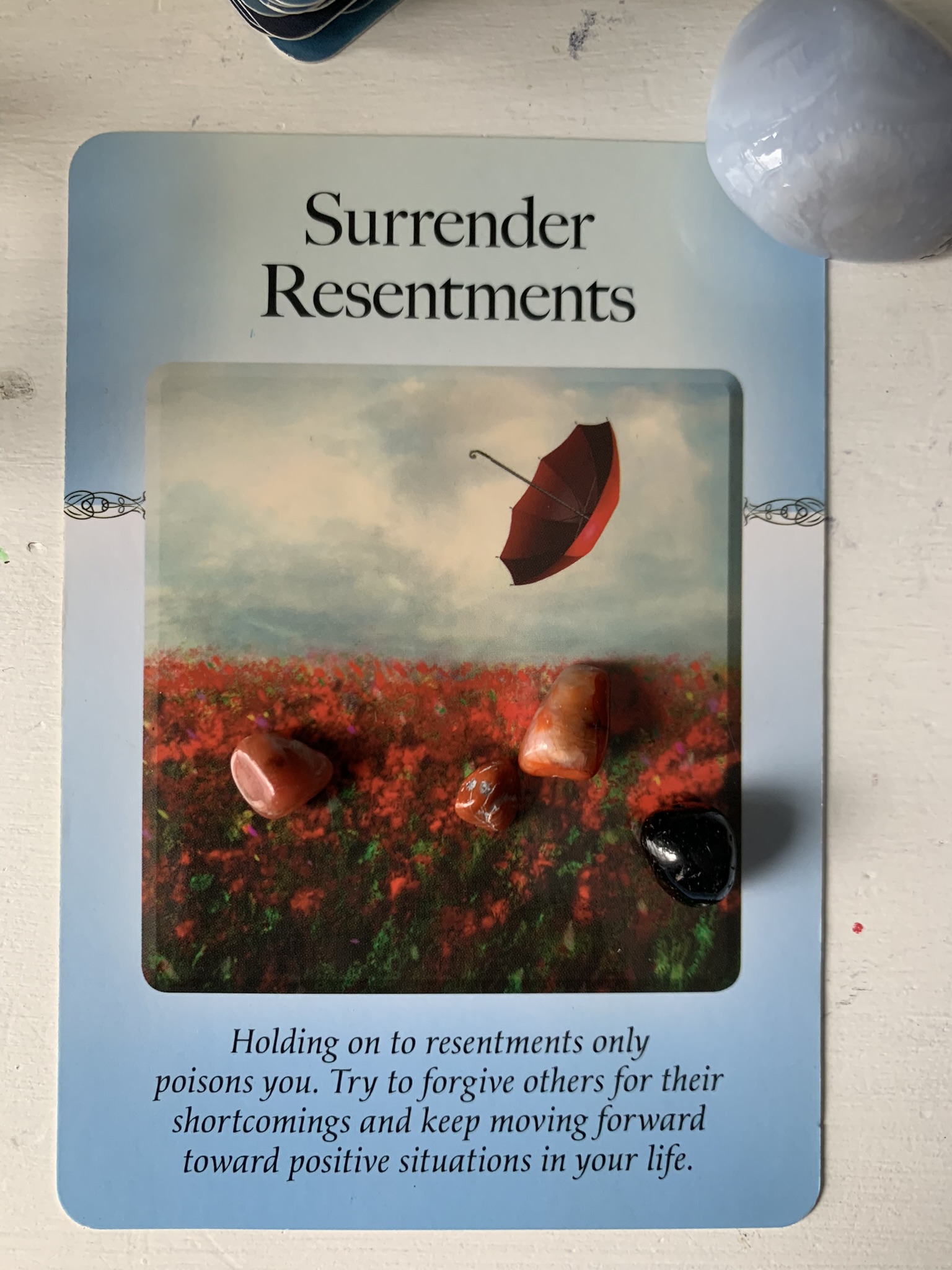Surrender Resentments

Surrender Resentments
Holding on to resentments only poisons you. Try to forgive others for their shortcomings and keep moving forward toward positive situations in your life.
Surrendering resentments involves letting go of negative emotions, such as anger or bitterness, that you may harbor towards others due to their actions or perceived shortcomings. Holding onto resentments can be toxic and hinder your personal growth, happiness, and relationships. By practicing forgiveness and focusing on moving forward, you can cultivate a healthier, more positive mindset. Here are some strategies to help you surrender resentments and embrace forgiveness:
Acknowledge your feelings: Recognize and accept the emotions you’re experiencing as a result of the resentment. Give yourself permission to feel these emotions without judgment, understanding that it’s natural to feel hurt or upset in certain situations.
Reflect on the situation: Take time to objectively assess the situation that caused your resentment. Consider the other person’s perspective, and try to understand their motivations or the circumstances that may have influenced their actions.
Express your feelings: Communicate your emotions and thoughts about the situation to a trusted friend, family member, or therapist. Sharing your feelings can help provide clarity, validation, and a sense of relief.
Practice empathy: Put yourself in the other person’s shoes and try to understand their perspective. Developing empathy can help you see the situation more objectively and make it easier to let go of resentment.
Choose forgiveness: Make a conscious decision to forgive the other person for their actions, even if they haven’t apologized or acknowledged their wrongdoing. Forgiveness is a personal choice that benefits you by releasing the burden of resentment.
Learn from the experience: Reflect on the lessons you can learn from the situation and how it can contribute to your personal growth. Use the experience as an opportunity to develop greater resilience, empathy, or self-awareness.
Focus on the present: Shift your focus from the past to the present moment, and concentrate on what you can control in your life. By letting go of past resentments, you can create space for more positive experiences and emotions.
Cultivate gratitude: Practice gratitude by focusing on the positive aspects of your life and the people who support and uplift you. Fostering a grateful mindset can help counteract feelings of resentment and promote emotional healing.
Set boundaries: Establish healthy boundaries to protect yourself from future emotional harm. Clearly communicate your needs, expectations, and limits to others, and be willing to enforce these boundaries if necessary.
Seek professional help if needed: If you’re struggling to let go of resentment and forgive, consider seeking the support of a professional therapist or counselor. They can help you work through your emotions and develop strategies for releasing resentment and fostering forgiveness.
By surrendering resentments and practicing forgiveness, you can free yourself from the toxic grip of negative emotions and create space for more positive situations in your life. Acknowledging your feelings, developing empathy, and focusing on the present are key strategies for letting go of resentments and moving forward toward a healthier, happier mindset.
YouTube - Morning Compass Surrender
Get Your Own Surrender Cards
Try to buy local, if not available use the link below:

